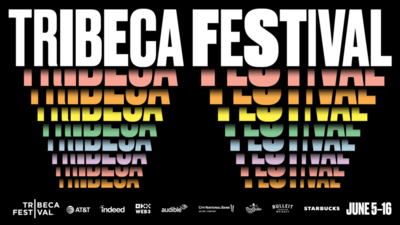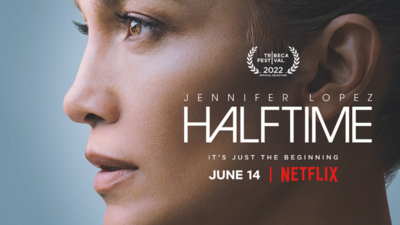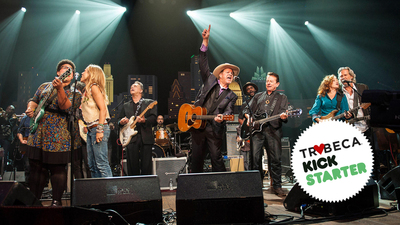
BY ZACHARY WIGON |
Rape Culture on College Campuses Exposed in New Documentary: Kirby Dick and Amy Ziering Talk 'The Hunting Ground'
Combining verité footage and first person testimonials 'The Hunting Ground' surveys the epidemic of sexual assault on college campuses.
Director Kirby Dick and producer Amy Ziering have made a career of illuminating contemporary issues that have yet to receive their spotlight in the media. Their documentary Outrage exposed gay politicians who vote against laws that would lessen discrimination on the basis of sexual orientation, and The Invisible War uncovered the epidemic of rape in the military. With their latest documentary, The Hunting Ground, they've once again tackled the matters of sexual assault, but this time the territory they're investigating is that of American universities.
The picture, takes as its central characters two survivors, Annie Clark and Andrea Pino, who form an organization called End Rape on Campus. For these students and others the film couldn't have come at a timelier moment. The movement around the issue has been pushed forward by vitims speaking out, most noticeably Emma Sulkowicz, a Columbia University student who has gained recognition for carrying a 50lb mattress around campus. Her action brings attention to the burden she carries by not having the support of her university to have her accused rapist expelled.
Similarly Lena Dunham has become a vocal advocate of campus reform around sexual assault. Dunham recently revealed she learned she was raped after the fact (she was highly intoxicated at the time, a fact that at many college campuses indicates a woman is incapable of giving consent). It is clear the conversation around campus assaults is shifting towards openness.
I recently sat down with Dick and Ziering to discuss their documentary, which addresses the institutional cover-ups and experience of the survivor in cases similar to these.
Tribeca Film: Why do you think it's taken so long for this issue to come to light in a significant way? Why's it being addressed now?
Amy Ziering: Social media. I think it's transformed the survivor movement. If you're impacted to by this kind of trauma, and then you're responded to with disbelief, it makes you go even more internal. It makes you self-isolating, self-harming. But now students can go online and see other people who are dealing with this, and share a story - that's empowering, it makes them not feel so alone. Talking to survivors from other generations, they were busy being depressed, hiding in their room - they didn't know this was happening to other people. They just thought they were unlucky.
Kirby Dick: But you do raise the question of why this has taken so long. I mean, tens of thousands of people have been aware that this was an issue over the course of this time. It's astonishing. Forty-five years after the issue of sexual assault was first addressed in this culture, this is where we are today.
Tribeca Film: What understanding did you gain of the points of view of the various universities you depicted in the documentary?
Kirby Dick: Well, for universities, reputation is really everything. The better the reputation of the school, the more qualified applicants they get, the more money they can raise. There's nothing wrong with that - it's great if people put money into higher education - but when fundraising trumps the safety of the students, the institutions' priorities are wrong. If institutions aren't forced to confront this, they will just proceed with business as usual.
Amy Ziering: We tried to interview a great number of administrators on camera, and didn't succeed. The power of an institution changes the way people respond to crisis situations - it makes people respond in ways they might not relate to them as individuals, which are more instinctive and empathic.
Tribeca Film: Did you ever get anything more detailed than a "No comment" from the universities?
Kirby Dick: Once in a while, when we approached university presidents, we got the sense that they wanted to talk, but couldn't. In a few cases we sensed that they were genuinely supportive that the film was being made, and would say very insightful things off the record, but they made the decision that they couldn't participate. They were afraid that any association with sexual assault in the name of their school - even if they were trying to address it - would be negative for the institution. That's how skewed the situation is. The only way to address the problem is to step up and own the problem.
Tribeca Film: Was that lapse in addressing this epidemic your way into wanting to tell this story?
Kirby Dick: We try to make films about subjects that the media hasn't covered. We made a documentary about closeted politicians who vote anti-gay, called Outrage, and we saw the media become much more open about calling out hypocrisy after the film was released. So we saw the potential power of documentary to really change the debate. We were fortunate that, as we were making this, we were able to capture the rise of this historic student movement to address this issue. These students have changed the debate. But the film has also put the voices of survivors in front of the audience in a way that no other medium can.
Tribeca Film: Was it a coincidence that the student movement was beginning as the documentary began, or was that what led you to decide to make the film?
Amy Ziering: No, we had no idea it would grow this way, that it would end up at the White House. We just followed the wave. We knew we wanted to cover and include this, we figured it would be a thread in the film, but we didn't know how prominent it would become.
Tribeca Film: What was the process like of getting the survivors to tell their story in a manner that enables them to open up as they do?
Kirby Dick: We reached out through every avenue we could - other survivors, activists, therapists, crisis centers, to find survivors. People were still afraid to speak, because the last time they spoke it was to the university, and they were shut down, but there was a trust in us because of our previous films. Amy often does the initial interview, and then I follow up at the end. She has an amazingly empathic way of connecting with survivors, letting them know their safety is what's most important, they can start or stop an interview whenever they want. It creates a safe space for them to talk. And they know we believe them. That's the way you should respond to any survivor.
Amy Ziering: I think I'm a good listener. I don't know why, but I'm not always thinking about my next question - I'm there in the moment, in the space with them. I do get nice letters from a lot of survivors saying that my interview with them was important. One woman told us that she saw the trailer and started crying - she told me that I was the first person who spoke with her about the rape and didn't question her, and that was the beginning of her journey toward healing.
Tribeca Film: The film ends with some suggestions on ways viewers can become involved. Documentaries, of course, can both start conversations and provide solutions to problems. What's the role you see this documentary playing?
Amy Ziering: I would love for the cultural conversation about rape to shift. I would love for it not to be about dates gone bad or drunk confusion. I think our film reframes it as a target act, a premeditated crime where predators exploit certain environments, who then get cover from the rape culture, which says oh, it's just kids. I hope we see a paradigm shift in our culture, and I think we're starting to see it. I also hope we see a destigmatization, where a sex crime is treated like any other crime, not one you should feel ashamed or embarrassed about. You shouldn't feel ashamed to tell someone about it. We would love for that transformation, and we would love for there to be new policies put in place.
The Hunting Ground will be released in select cities February 27.

